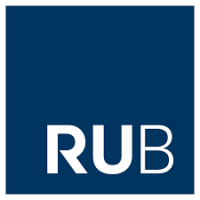
Background:
The Institute for International Law of Peace and Armed Conflict (IFHV) is one of the leading academic institutions in Europe for teaching and research in the context of humanitarian crises. Within the framework of a consortium project with the Umbrella Organization of German NGOs for Development and Humanitarian Relief (VENRO), the IFHV hosts training courses to support German humanitarian NGOs and their local partners in their efforts to implement future-oriented approaches and reforms, to drive innovation as well as to enhance sustainability and efficiency.
This project includes, amongst others, a training package on Greening Humanitarian Action. On behalf of the IFHV, the Academy of the Ruhr-University intends to commission external service providers to design and conduct a training course on Greening Humanitarian Actionwithin this package. The event is aimed at humanitarian NGO staff working on or interested in implementing projects and programming related to green humanitarian action. The training will be advertised and conducted under the umbrella of the academy for humanitarian action (aha) and shall be integrated into the aha’s certification program.
Complementary to the training events, the IFHV will conduct a research project to track direct and indirect emissions by NGOs. Mainstreaming the topics of Emissiontracking and related Tools into all advertised trainings is therefore highly desirable. IFHV staff will be available to advise on integrating these components into training concepts throughout the further planning process.
We invite you to bid with a written proposal on the services described below by email by October 19 , 2023, at 12:00 noon (CET). The training series consists of six training sessions grouped into three thematic clusters.
Service Description: Training package on “Green Humanitarian Action”
According to the current IPCC report, human-induced global warming has already caused an increase of 1.1°C since 1900. The world is expected to reach the 1.5°C limit in the early 2030s. The climate crisis affects humanitarian action in two mirrored ways. First, environmental catastrophes often contribute to factors of already existing crises. Secondly, humanitarian crises and humanitarian response can have degrading impacts on the environment if managed inadequately. Integrating new humanitarian mechanisms, tools, and standards taking into account environmental impacts will heavily improve the quality of humanitarian action. This training package, therefore, concentrates on the various links between the environment and humanitarian action, its biggest challenges, and the potential opportunities to enable environmentally responsible answers.
Training: Climate-Neutrality Transformation within NGOs: Step by Step towards greater sustainability
(3 days online; 24 working hours)
Brief description of the training:
The climate crisis threatens humanity now and in the future. NGOs must do their parts to ensure that humanitarian action aligns with the ‘do no harm’ principle. Therefore, NGOs must improve their carbon footprint both in their HQs and the field. This has to be achieved by mainstreaming environmental concerns in the planning phase, assessment, and later conducting humanitarian assistance. This workshop seeks to introduce the participants to preconditions their organizations must implement to pave the way for a more environmentally friendly and sustainable response, especially regarding environmental assessment methods and emission tracking. The training aims to introduce participants to best practices for sustainable transformation and provide them with concrete ideas on how to achieve this transformation. The facilitated exchange should address the staff of international NGOs and their local partners. It can be complemented with selected inputs and/or group work.
Location, time and language:
Online Event, expected in December 2023. The workshop should be delivered in English.
Objectives of the workshop:
- The participants know which requirements within their organizations must be taken to ensure an environmentally friendly humanitarian response.
- They get the opportunity to present and exchange the status quo and concrete project examples from their own organizations.
- They collect and learn about best practices concerning sustainable transformation.
- They critically reflect on the potential and applicability of the newly acquired skills in their own work context.
How to apply
Further information on submitting proposals:
- Please send your written and signed tender documents as a PDF-document by e-mail only to aha-trainings@ruhr-uni-bochum.de. Please note: Tenders that are sent to a different e-mail address will not be considered!
- The deadline for submitting tenders expires on October 19, 2023, at 12:00 noon (CET).
The tender should enumerate separately the costs (without VAT) and daily rates for the service areas 1) planning, 2) implementation, 3) documentation (please note that the training will be VAT exempted under §4 Nr. 21 UStG under German law). In addition, please provide an indication of the estimated travel costs.
- Please add a written sketch of the schedule (with a suggested title) to the offer, which shows the content, methods and goals for each event (max. two A4 pages per event). The goals, format and focus formulated in your offer may deviate from the indications listed in this call if this appears reasonable from your point of view.
- Please also send us the curriculum vitae of all trainers or speakers, showing relevant work experience (in terms of content and methodology).
- The decision to award the contract will be made on the basis of the costs (50%) and the quality of the tender (in terms of fit of the individual elements of the schedule to the objective, feasibility of the approach and variety of methods) (40%), as well as the experience of the provider in conducting training in humanitarian action (10%).
We are looking forward to receiving your offer.
For questions on the call for proposals, kindly consult Aaron Dumont at aaron.dumont@ruhr-uni-bochum.de
